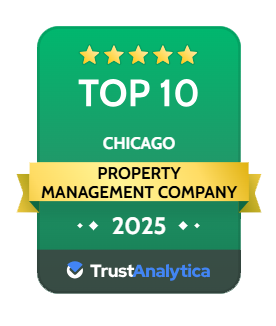So, you want to be a better landlord?
Maybe you’ve been running a successful rental - or maybe you’re about to start renting your property…
Here’s some things we suggest you consider in order to be the best landlord possible
Find High Quality Tenants
Nothing is going to make your job easier, than finding the right tenants. Tenants who have a good credit history, clean record and stable income, will require less from you. Make sure you’re mindful and adhere to the local state and city laws when it comes to renting. Be careful of the language you use in your advertising, on the phone, in person and in your documents so you don’t violate the Fair Housing Laws.
Design A Solid Lease Agreement
You can work with a law firm to ensure that your contract is state-specific, thorough and clear on tenant vs landlord responsibilities. The lease will be vital to your property and businesses’ well-being, should any issue arise.
Train Your Tenant
It may sound silly - but make sure that tenants respect your boundaries, pay rent on time, and communicate with you if any issue does arise. Communicate with your tenant in the way you want them to communicate with you. Whether it’s via text, call, email or even a tenant portal. In return, you must manage your properties efficiently and effectively through routine inspections and consistent communication. This will also keep your risk of getting sued to a minimum.
Handle Issues Promptly and Effectively
Do your best to ensure your tenant feels respected - even when issues do arise (because they will.) You want to make sure their concerns and questions are answered in a timely manner. If the microwave breaks or the air conditioning stops working - make sure they know you are working to have things fixed as soon as possible. Happy tenants mean less issues and a lower turnover rate. Consider keeping a contact list on hand for all things maintenance.
Develop Routine Systems
If you’re renting over a long period of time, make sure you pre-schedule any maintenance that needs to be done to the property. Whether it’s an inspection, new paint, new appliances, etc., make sure that the tenants know what to expect. In between tenant changes, make sure thorough inspections are completed on time, cleanings are taken care of and all appliances are working. Develop a relationship with your contractors so if you need something done last minute, they might be able to help you out a little faster.
Stay Organized
If you commit to running the property yourself, you’ll have to be available when needed. It can be extremely frustrating for tenants when they cannot reach their landlord. Try to organize your schedule so you can be available for these situations. Most likely, you decided to rent out your property to make money and free up your time. If you can set up clean and organized systems for marketing, screening, move-in processes, and renewals - it will save you days, if not weeks over the long-run. It will help you to make better decisions, improve your processes, and grow your portfolio in the long-run.
Transition Tenants Out Carefully
Make sure you set clear expectations in advance for tenant move outs. If you can minimize turnover, and keep a quality tenant you could save thousands in the long-run. However, there is a natural turnover rate with tenants, and move-outs are inevitable. No one wants to clean up the mess after a tenant moves out - especially if there’s any damage involved. So set your tenants up for success and lay out clear expectations with a list for their move-out inspection.
Respect The Tenant’s Privacy
Tenants will respect you more if you let them know ahead of time when you plan to stop in, and many states require this notice legally. If you have an issue or concern, give them a heads up you will be stopping by. While the tenant may not legally “own the home”, it is their space and should be treated as so throughout their lease agreement. No one wants to feel like they’re constantly being monitored.
Be Compassionate
If an issue does arise (which it will) try to treat the situations with compassion. For example, if a tenant is sick, or letting their recently divorced brother stay on their couch - and they’re late on a payment, try to communicate with compassion. They will remember your kindness, and possibly choose to extend their lease with you rather than renew elsewhere.
All of these components are key for finding, keeping and working with your tenants. A great tenant makes a great landlord. Follow these great tips and your tenants will respect you and your property even more!






.png)


